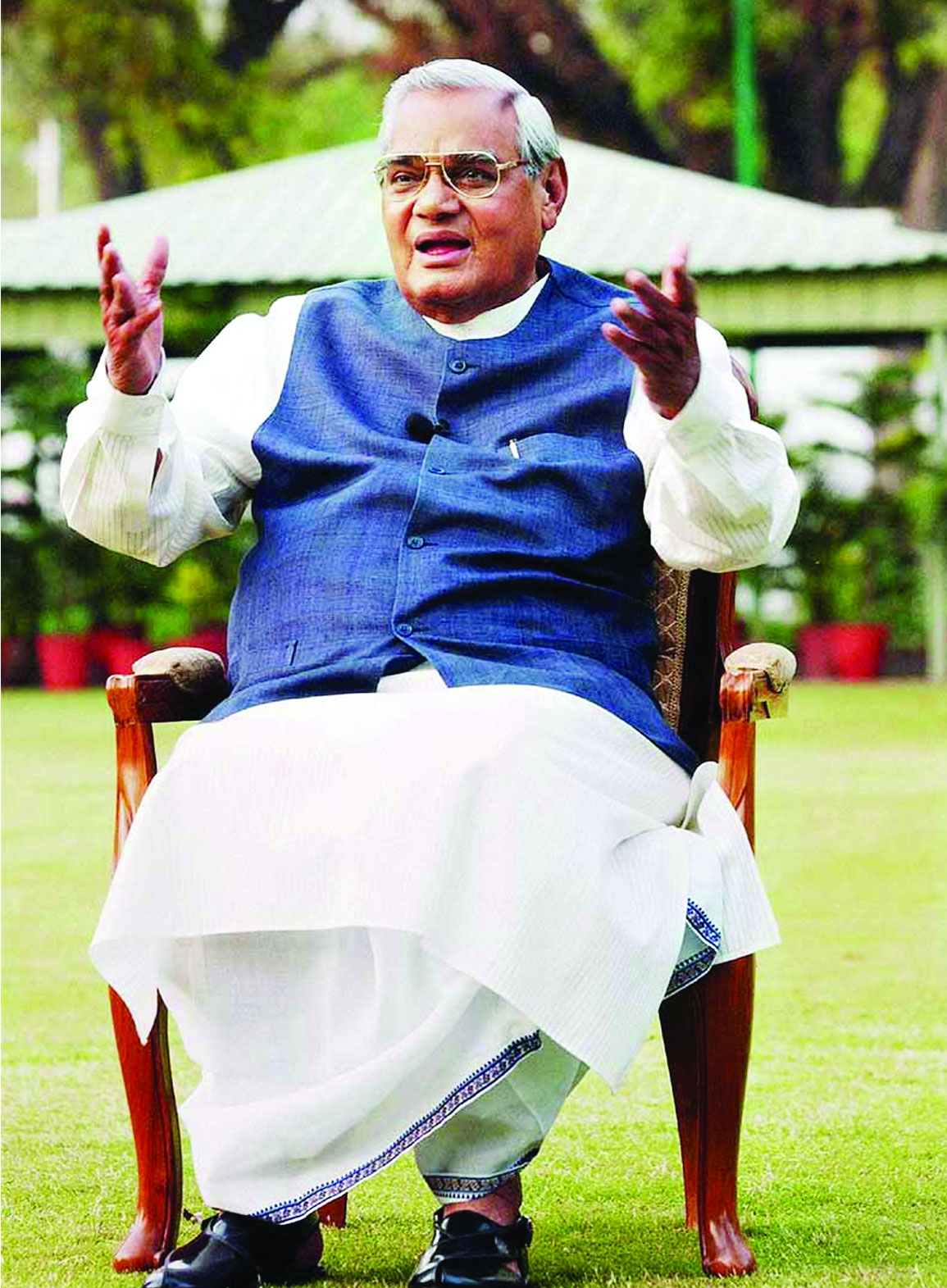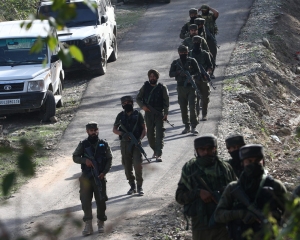Widely referred to as India's poet-Prime Minister across the globe, Atal Bihari Vajpayee did sing a unique song in his perpetual search for connections between poetry, popular culture, and politics. UMANG AGGARWAl explains how
It was the Age of Innocence, an era when social media had not breached every imaginable wall between a people and its icons, nor indeed cloistered and imprisoned every human in his or her own virtual world. Those bygone days were defined by a now extinct phenomenon called human connect and Atal Bihari Vajpayee was a master magician of this art. As a politician, oratory and statesmanship were his natural calling, but it was the poet in him which understood how politically potent an instrument popular culture could be.
Vajpayee’s quest for unadulterated humaneness all through his political journey often took him through the bylanes of art, poetry, and cinema, as he sought to reach out to his ever-growing constituency. Recalling his innumerable interactions with the former Prime Minister, the Pioneer’s Editor Chandan Mitra says, “Hindi cinema has lost one of its biggest admirers.” Not an unexpected observation considering the primacy Vajpayee attached to the inimitable outreach of film actors and their concomitant political relevance. Be it the evergreen romantic lead of Sholay, Hema Malini and Dharmendra, or Mere Apne’s melancholic duo of Shatrughan Sinha and Vinod Khanna, many actors have entered the corridors of the Indian Parliament as BJP representatives, in no small measure owing to Vajpayee’s staunch belief that art and life often walked hand in hand.
In fact, the bond between former Deputy Prime Minister lal Krishna Advani and Vajpayee has been famously compared to Sholay’s Jai and Veeru’s companionship. The duo’s close friends are privy to how it all started and how their mutual interest in Hindi cinema grew from a newspaper called Motherland. Mitra points out that Vajpayee was the editor of the publication and Advani its film critic. “And since they were friends, he (Advani) would take Vajpayee along. They used to share a flat at that time. With not much to do in the evenings after office, they would often catch a bus to Golcha or Jagat for a film.”
As a poet, it was only natural for Vajpayee to tilt towards Hindi film music too. However, Mitra says, “Of the two, Advani is the one who is more passionate about movies. He used to host screenings of latest Hindi films and invite friends over to watch it along with him. To date, when you meet him, his first question is, ‘Which movie did you last watchij’ and even before you can answer, he starts telling you about the ones he has watched. Even when he travels, he carries DVDs of his favourite movies.”
Mitra remembers talking to the former Prime Minister about how desirable it would be to listen to old Hindi film songs on board his official Air India One flights overseas instead of Indian classical or Western classical music and how Vajpayee promptly attended to the request.
“Unlike Jawaharlal Nehru and Indira Gandhi, Vajpayee had an active interest in Hindi films and was quite open about it. Indira Gandhi would watch movies but only Hollywood classics. A lot of Vajpayee’s early years were spent in and around cinema halls. He was quite fond of talking to film stars too. Manoj Kumar and Dilip Kumar were his favourites — he would never miss a film starring one of them. As a poet, he used to be quite interested in the script and storyline and was especially fond of patriotic movies. Therefore, Manoj Kumar, whom he would refer to as Mr Bharat, was his favourite,” says Mitra.
Almost legendary now is an anecdote of how, in the early 1950s when the Jana Sangh had suffered a major electoral setback, Vajpayee and Advani decided to go and watch a Raj Kapoor film appropriately titled Phir Subah Hogi. Recalling a Sahir ludhianvi song from this film, “Woh subah kabhi toh aayegi,” Mitra says the two are said to have emerged from the theatre with precisely this hope for their political fortunes. The rest is history. Vajpayee, the poet, went on to write, “Haar nahin maanoonga/ raar nahin thanunga/ kaal ke kapaal pe likhta mitata hoon/ geet naya gaata hoon.”
Undoubtedly, the poet in him enhanced his humane essence. Mitra remembers one such incident: “I was friends with his foster daughter Namita. As the foreign minister, when he was set to go abroad for the first time, she said, ‘Why don’t you come meet him; it’s been a while. Aur kuch mangwana hoga toh batana.’ When I went over to their house at 5 Feroze Shah Road, I found him sitting with his pet Pomeranian. He asked me ‘Kya laana haiij’ It was during my student days and even then I knew he was not a judgmental person, I said, ‘Maine kabhi canned beer nahin pi hai. Woh agar aap la payein toh.’ You couldn’t find it in Morarji Desai’s Delhi at that time. He said, ‘Canned beerij Tumko canned beer chahiyeij Bahut mil jayega tumhe aage jaakar.’ I said, ‘Aap dekh li jiye — aapko theek lage toh aap le aaiyega.’ A few days later, when I met Namita, she said, ‘Aur tumhara woh canned beer rakha hai ghar par. Woh le lena.’ (When I went over) he personally handed over the thaila with a set of four cans to me and said, ‘Zyada mat lijiyega.’ I went back to my hostel room and my friends and I had a can each. The point is that his humaneness was astounding. For him to remember such a request made by just a friend of his daughter’s was quite something.”
Vajpayee’s poetry defined the politician in him. “Atalji always liked to keep in touch with learned, literate, culturally-aware people — be it Hindi novelists or film stars. It was not just that he loved to write or that he wrote well, it was that despite a very busy schedule, he made sure that he wrote regularly and expressed himself through that medium,” says Mitra whose interactions with Vajpayee go back to the days when Emergency had been partially lifted and general elections were about to be held.
“The University campus used to be dominated by the Congress at that time. Preparations for a campaign for the Janata Party were on. I had often heard some of his speeches. He used to be a powerful speaker so I told my friends that I would like to meet him. I was introduced to him. When I spoke about the campaigns, he said, ‘lage raho’. Over time, I became a frequent visitor to his house where we would often sit and talk about movies,” says Mitra.

























